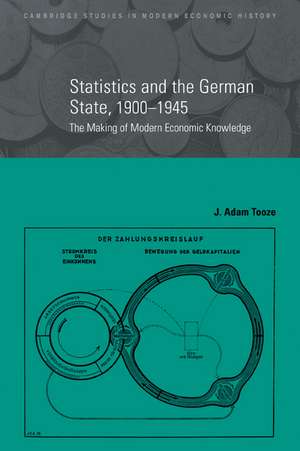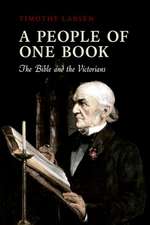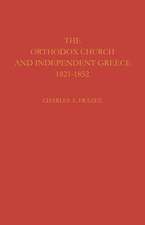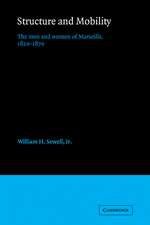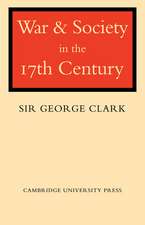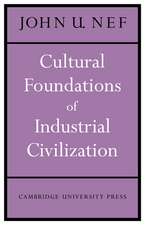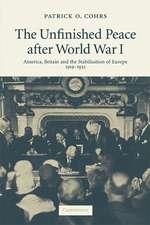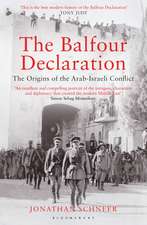Statistics and the German State, 1900–1945: The Making of Modern Economic Knowledge: Cambridge Studies in Modern Economic History, cartea 9
Autor J. Adam Toozeen Limba Engleză Paperback – 15 aug 2007
| Toate formatele și edițiile | Preț | Express |
|---|---|---|
| Paperback (1) | 396.20 lei 6-8 săpt. | |
| Cambridge University Press – 15 aug 2007 | 396.20 lei 6-8 săpt. | |
| Hardback (1) | 698.50 lei 6-8 săpt. | |
| Cambridge University Press – 5 sep 2001 | 698.50 lei 6-8 săpt. |
Preț: 396.20 lei
Nou
Puncte Express: 594
Preț estimativ în valută:
75.81€ • 79.15$ • 62.74£
75.81€ • 79.15$ • 62.74£
Carte tipărită la comandă
Livrare economică 04-18 aprilie
Preluare comenzi: 021 569.72.76
Specificații
ISBN-13: 9780521039123
ISBN-10: 0521039126
Pagini: 336
Ilustrații: 2 b/w illus. 9 tables
Dimensiuni: 152 x 228 x 19 mm
Greutate: 0.49 kg
Editura: Cambridge University Press
Colecția Cambridge University Press
Seria Cambridge Studies in Modern Economic History
Locul publicării:Cambridge, United Kingdom
ISBN-10: 0521039126
Pagini: 336
Ilustrații: 2 b/w illus. 9 tables
Dimensiuni: 152 x 228 x 19 mm
Greutate: 0.49 kg
Editura: Cambridge University Press
Colecția Cambridge University Press
Seria Cambridge Studies in Modern Economic History
Locul publicării:Cambridge, United Kingdom
Cuprins
List of figures; List of tables; Acknowledgements; Glossary and abbreviations; Introduction; 1. Official statistics and the crisis of the Wilhelmine state; 2. The Republic's new numbers, 1918–23; 3. Weimar's macroeconomic statistics, 1924–29; 4. The crisis of Weimar's statistical establishment, 1930–3; 5. Statistics and the 'Strong State', 1933–6; 6. The radicalization of the Nazi regime and the death of official statistics, 1936–9; 7. World War II and the return of macroeconomics; Conclusion; Appendix: Wagemann's national economic account - explanatory notes; Bibliography; Index.
Recenzii
'This is a book of unusual originality and sophistication. In the burgeoning literature of history of statistics, it is one of the first and unmistakably the best to focus on the production and use of economic numbers … He provides wonderful insights into the circumstances of the German economy during this traumatic era. In short, he makes the history of economics and of statistics speak to central questions of the historical development of state and economy in Germany … a work of impressive historical scholarship, a skilful disinterment of issues from a much-worked historical field … This is a superb book, which deserves to be issued in paperback so it can be widely read.' Ted Porter, Journal of Economic History
'This important and interesting book will be of great value not only to discussions of German political economy in the first half of the twentieth century but also to debates about economic knowledge and how it develops … extraordinarily ambitious … compelling reading.' Harold James, Business History Review
'… an original and important book ... a very readable book, stimulating, indeed exciting to the very end.' Knut Borchardt, Historische Zeitschrift
'… a very impressive first book.' Roger Middelton, History of European Ideas
'It has been years since I last read a book that opened up such neglected vistas. However assessed, the first half of this book, particularly, should be … mandatory reading for everyone interested in the history of economic thought …' Mark Perlman, Eh.net
'This is an important book … he provides what is doubtlessly the best existing account of Germany's experimenting with economic policy after World War 1.' Financial History Review
'This important and interesting book will be of great value not only to discussions of German political economy in the first half of the twentieth century but also to debates about economic knowledge and how it develops … extraordinarily ambitious … compelling reading.' Harold James, Business History Review
'… an original and important book ... a very readable book, stimulating, indeed exciting to the very end.' Knut Borchardt, Historische Zeitschrift
'… a very impressive first book.' Roger Middelton, History of European Ideas
'It has been years since I last read a book that opened up such neglected vistas. However assessed, the first half of this book, particularly, should be … mandatory reading for everyone interested in the history of economic thought …' Mark Perlman, Eh.net
'This is an important book … he provides what is doubtlessly the best existing account of Germany's experimenting with economic policy after World War 1.' Financial History Review
Descriere
This book considers statistical innovation, 1900–45, in the Weimar Republic and the Third Reich.
